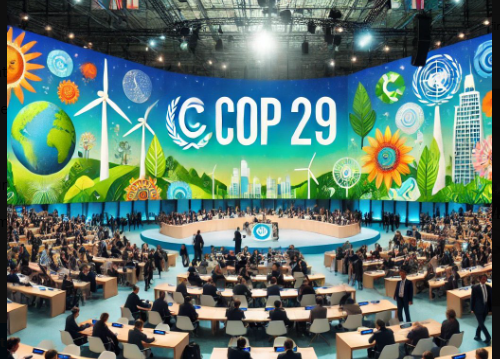
Action Aid has challenged rich polluting Global North countries to provide adequate climate financing for adaptation, mitigation and loss and damage
Speaking during a press briefing on the opening day of COP29, Action Aid head of delegation Teresa Anderson said wealthy countries of the Global North have been evading their responsibilities.
She stated that in 2022, developed countries only provided US$28-35 billion in grants for climate action in the Global South.
“For context, the world spent twice as much on ice cream that year (US$71 billion). We can’t avert planetary meltdown by spending less on climate finance than we spend on ice cream,” she said.
She said sticking the Global South with an escalating climate bill is not only unfair but a recipe for certain planetary breakdown.
“This is why climate-hit countries desperately need COP29 to agree a new climate finance goal that delivers real worth trillions of dollars in grants each year,” Anderson stated.
“They say there is no such thing as a free lunch—well there’s no such thing as a free climate target either. If we’re serious about climate action, we have to pay for climate action.”
The 2024 United Nations Climate Change Conference or Conference of the Parties of the UNFCCC, more commonly known as COP29, is the 29th United Nations Climate Change Conference.
COP29 is being held in Baku, Azerbaijan, from November 11-22, 2024.
Michelle Higelin, Executive Director of ActionAid Australia, said wealthy countries must step up climate finance at COP29.
“Rich polluting countries have a responsibility to provide climate finance, but they are failing in this obligation. We want them to commit to grant-based finance and not loans,” she said.
“Australia often talks about supporting our Pacific neighbours to respond to the climate crisis—now is the time to put that solidarity into action.”
Nura Ahmed Mohamed, the country programme manager with ActionAid Somaliland, said climate change is more than an environmental crisis.
“It is a humanitarian disaster with severe gendered impacts. Increasingly frequent droughts and flash floods threaten the lives and livelihoods of countless families, but the toll is particularly harsh on women and girls,” Mohammed said.
Mosammat Dulali, a community member from the Kalapara region in Southern Bangladesh, noted: “In my childhood, I didn’t witness disasters as severe as those in recent years, especially from 2007 to 2024.”







